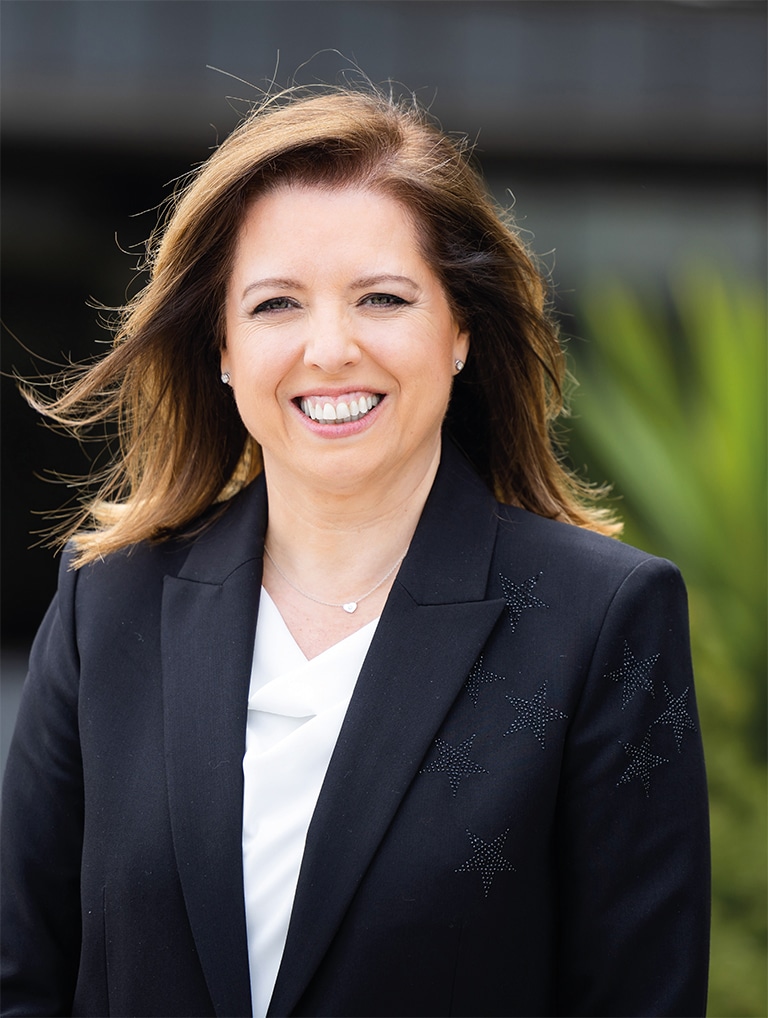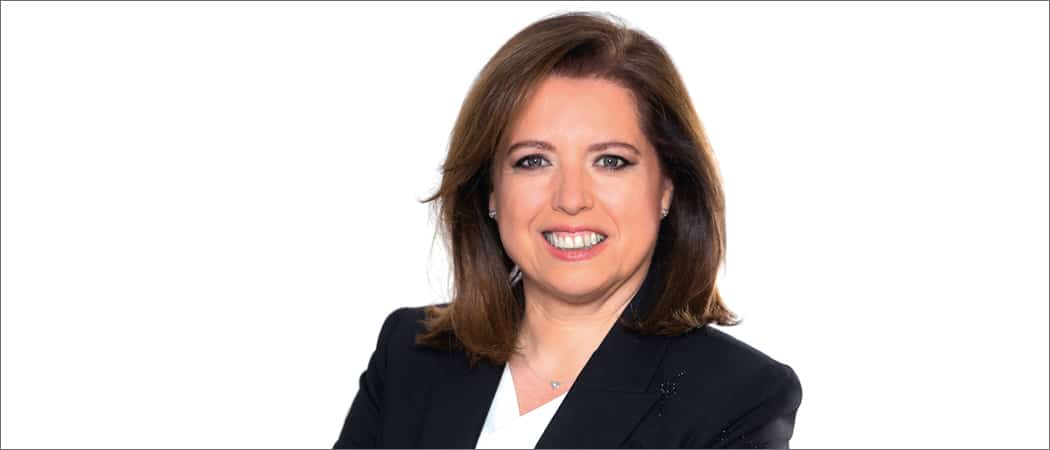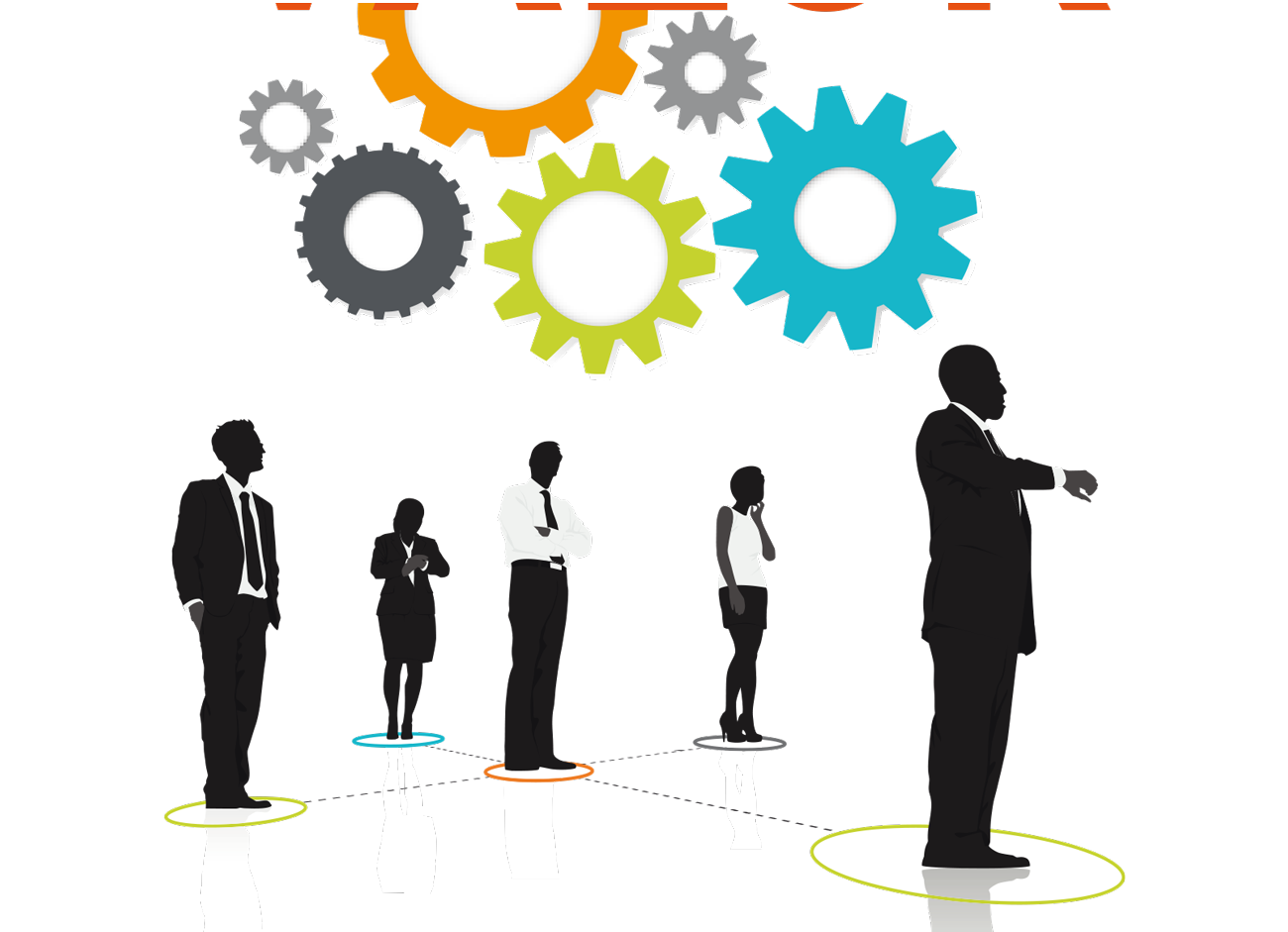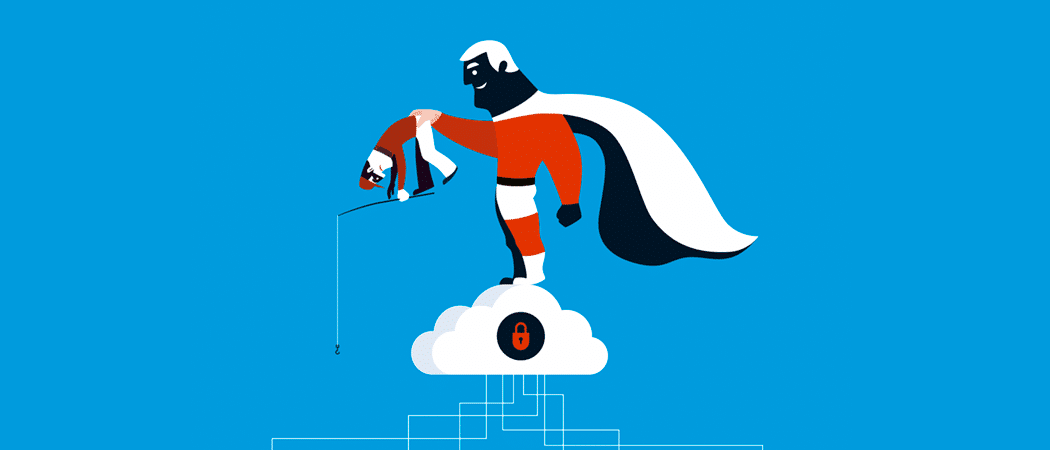MAPFRE, where your time becomes meaningful
TEXT JAVIER FERNÁNDEZ | PHOTOS MAPFRE
We sit down with Elena Sanz Isla, MAPFRE’s Group Chief People Officer and member of the MAPFRE Board of Directors, to take a look at her story, the key aspects of managing people at MAPFRE over the course of the last 30 years and where we are headed in the future. Comprehensive global people management, the corporate university and the breakthrough in diversity and inclusion policies are the milestones that make her most proud of the area she manages.
You joined MAPFRE in 1994 as part of a program for recent graduates who joined MAPFRE’s international project, although you didn’t start in human resources until 2000. What do you recall about people management when you joined the company? What were your first impressions?
At that time, human resources departments were becoming something other than mere administrative workforce managers. There were countries where MAPFRE operated in which people management had evolved significantly in fields like training, recruitment and well-being; and there were others where these departments only managed payroll. From the very moment I joined MAPFRE, what caught my attention was that the company’s culture of social commitment was also present in employee management and that the company was highly sensitive to the needs of its employees. I was particularly impressed by the weight placed on training teams and the drive for internal promotion, MAPFRE’s hallmark that has allowed the company to boast highly prepared and committed talent.
How are we different now?
Logically, the situation in the 1990s has nothing to do with today’s situation. For starters, we are no longer the Human Resources department, rather the People and Organization department, because MAPFRE’s dedication to people had to be reflected in the name of the department that we now represent. Everything is completely different. We have taken great strides in terms of diversity, in line with the evolution of society, both in terms of equality, as well as intergenerational, inclusion, cultural, etc. We are a very fortunate company that is enriched by more than 80 different nationalities and cultures, with five generations of people working together. Before, although we had started working on the internationalization of the company during the previous decade, we were essentially a company of Spaniards and, fundamentally, men, as that was how the insurance sector had been for decades. These factors have now been overcome. The company has built a solid and transparent model of diversity that we export to all the countries where we operate — now almost 40 countries — which, by default, in some less advanced markets in these matters, means an important social impetus, with companies like MAPFRE naturally introducing gender, equality, inclusion issues as a relevant commitment for the company.
What makes us different now is what has always made us different: the technical excellence of the business, our huge commitment, the high quality of the services provided and our social footprint.
From the very moment i joined mapfre, what caught my attention was that the company’s culture of social commitment was also present in employee management.
We are a very fortunate company that is enriched by 80 different nationalities and cultures, with five generations of people working together.
If you had to highlight one milestone that you are especially proud of at the company, what would it be?
I would say three milestones that have marked the shift in people management at MAPFRE. One of them is global integrated people management, through a common technological system on the cloud that makes it possible to connect more than 80 different nationalities, with a standard system for posting vacancies, training, knowledge management, indicator control and organizational management. As a result, employees make progress in their own positions and in their development, and the company obtains comprehensive information on talent and organizational variables from around the world in a single point. The second milestone is the corporate university, MAPFRE’s training and development management center, which provides access to all employees and imparts knowledge of the organization. It is a living, up-to-date space through which everybody can access updated knowledge and manage self-learning. And the third milestone would be the breakthrough in diversity and inclusion policies that I just mentioned, where a global system deployed in all countries outlines objectives, policies, management procedures and information and awareness systems. The inclusion of people with disabilities, management of all cultural diversity, respect for all generations and elimination of all kinds of gaps, especially gender gaps, which cannot be closed on their own. We are committed to accelerating the closure of all types of inequality gaps as part of a firm and committed strategy like the one we have followed. At MAPFRE, we refuse to let up on the equality commitments assumed and defended, inside and outside the company, by Antonio Huertas. It is particularly important that senior executives lead the charge when it comes to issues that require special impetus, given the history of our industry traditionally being male-dominated. A leader was required who would accelerate this transformation insofar as possible, which we have now practically achieved. The company employs more women than men; there is equality on the Board of Directors, where 7 of the 15 members are women; thanks to the equality programs, there are progressively more women in managerial positions; and, finally, we will close the gender gap, inherited from the Spain of the past, by the end of next year. On top of this, we are one of the few companies that has a strategy for managing the company’s senior talent, the Ageing Project.
What is the current status of people management at global organizations like MAPFRE and where is it headed?
People management will continue to be structured around talent and on the organization’s progress toward more collaborative and transversal ways of working. All of this is supported by a new system of interaction between employees and the company, which harnesses all the collaborative tools, knowledge platforms and the relationship between the different people at the organization through the development of transversal projects. Self-development, which we already champion, will be key as part of the two-way commitment between the company and its employees. Each employee will be able to design their own career at the company based on extensive, transparent and comprehensive information about the objectives and challenges posed by the present and future circumstances of the company.
Furthermore, the People and Organization department itself we will continue to make progress with data management, which is more comprehensive and relevant each and every day, allowing for the faster and more predictive identification of the necessary skills, talent management and the personal and professional development needs of employees. All this comes in addition to well-being programs, as well as our programs for the commitment to society in which our employees take center stage. MAPFRE cares for its employees just as it does for its customers, other stakeholders and society in general. It is no coincidence that our motto is “We care about what matters to you” and our employer brand is “MAPFRE, where your time becomes meaningful.”
The social pillar of sustainability continues to be the most important for MAPFRE, not only when it comes to aspects such as employability, inclusion or diversity, but also for issues such as promoting financial education or the accessibility of insurance.
MAPFRE cares for its employees the same way it cares for its customers, other stakeholders and society in general.
What three major challenges do people managers face at global companies?
People managers move forward in step with societies, improving our capabilities by using technology and increasingly efficient data management, which allows us to be more predictive in our resource management. However, despite this reality, the major challenge that lies ahead is essentially the same one we had before: having the best talent, with the best abilities and the most commitment. The challenge is greater every day on account of the increase in demands of business and society, which require rapid adaptation by the company.
Talent is increasingly important to companies. In addition to this objective, people managers also face three very important concepts: speed of change, commitment and development. These are the three challenges facing people management. Time is an increasingly important variable in everybody’s lives, even more so in a changing and competitive world, as all our processes must be designed pursuant to the principles of flexibility and agility. Commitment must be a variable to work constantly, not only because the most committed people are more productive, but also because they feel that their company provides them with access to full personal and professional development. The third very important concept for me is the continuous and constant development of all teams to increase their employability and for them to access more opportunities.

we share the same objective: your talent illuminating
our company.
In addition to people management, you are also chairwoman of the company’s Sustainability Committee. What would you highlight as part of MAPFRE’s sustainability strategy?
MAPFRE has always fulfilled its responsibility toward the environment and the societies in which it operates, with all its customers, collaborators, employees, shareholders, etc. Today, sustainability has gone one step further because it is impossible to do business without considering the social, environmental and corporate governance variables with all the people we interact with. The social pillar continues to be the most important for MAPFRE, not only when it comes to aspects such as employability, inclusion or diversity, but also for issues such as promoting financial education or the accessibility of insurance. We are working hard on the current Sustainability Plan to achieve all our commitments, and we are doing this increasingly through comprehensive action, not only at a global level, but also by helping with the company’s transformation so that our activity, the business, is undertaken with a sustainable vision of the present and future.
As an executive director at the company, you also have a broader view of activity. In your opinion, and after nearly 30 years at MAPFRE assuming different responsibilities, where do you think the most progress has been made with the transformation of the company, what makes us substantially different from when this magazine was first created and what have we safeguarded as the essence of the company?
I believe that what makes us different now is the same thing that has always made us different: the technical excellence of the business, which strengthens our solvency and profitability, and the enormous commitment in everything we do, high quality in the provision of services and our social footprint helping to grow the societies where we are present. MAPFRE’s DNA — which already in the 1960s stated in its bylaws that, in addition to economic profitability, we had to produce social profitability — remains one of the hallmarks that we have been able to safeguard and integrate into the enormous transformation that the company has been undergoing in all its structures. A particularly fast shift over the past decade in step with the progress made in global digitization. We are the largest Spanish insurance company in the world, leaders in Latin America, global drivers of this transformation that the global insurance industry has embarked upon.



